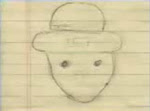Monday, November 17, 2008
Thirty Years War
The Thirty Yeaars War was a religious war, fought mainly in the Holy Roman Empire, lasting from 1618 to 1648. It began as a war between Catholics and Protestants, but the grew to be a political war involving most of Europe. The Peace of Augsburg was a major cause because, although it briefly ended religious battles, it only recognized Catholicism and Lutheranism; as Calvinism bgan to spread, more religious conflict resulted because it was not recognized by the Peace of Augsburg. The war continued the Bourbon-Habsburg rivalry. It resulted in a large number of casualties and, eventually, the Peace of Westphelia.
Tuesday, November 4, 2008
Zwingli Reformation

Huldrych Zwingli was the leader of the reformation in Switzerland. He opposed fasting during lent, corruption in the ecclesiastical hierarchy, and the use of images in places of worship. He clashed with the Anabapist reformers, which ultimately led to their persecution. One reason for this clash is because of their differing views on baptism. The anabaptists did not believe in infant baptism, while zwingli defended it. He believed that church and state should not be seperate, but that they should work together and be one soveriegn authority under God. Another thing that set Zwingli apart from other reformers was his belief about the eucharist. He did not agree with other reformers that the bread and wine actually become the body and blood of Christ, but rather that they are a symbol and signify them.
Sunday, October 19, 2008
Renaissance Artists
The artists I researched emphasizes Reanaissance ideals because they had to do with religion. In Bosch's Garden of Earthly Delights, he warned the people of earthly temptations and the damage they can do. In The Last Supper, da Vinci depicted Christ's last supper before his death. While hte two paintings were extremely different in their realism, they were both very detailed paintings, which was also characteristic of art at the time of the Renaissance.
Thursday, October 9, 2008
Christopher Columbus: Hero or Villain?

In recent years, there has been speculation as to whether Christopher Columbus is a hero or a villain. Some argue that he is a hero because without him America might have never existed, while others argue that he is a villain because he enslaved natives and claimed to discover the Americas even though he was not the first to do so. In my opinion, Christopher Columbus remains a hero because although he did not really discover America, he was the first to publish his findings and make Europeans more aware of the New World.
When Columbus first came to the Americas, he wrote down what he saw in a journal. When he returned to Europe, his findings were published so that his fellow Europeans could also know about the new world. Although his publications were likely biased, no one in the old world would have known about these things if he had not written about them.
When Columbus first came to the Americas, he wrote down what he saw in a journal. When he returned to Europe, his findings were published so that his fellow Europeans could also know about the new world. Although his publications were likely biased, no one in the old world would have known about these things if he had not written about them.
Subscribe to:
Comments (Atom)
